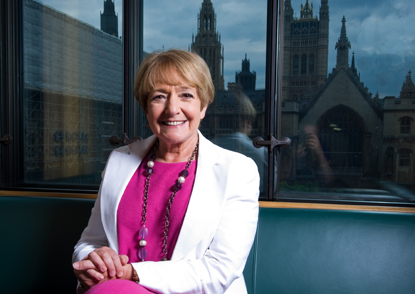By Nick Mann | 16 November 2011
Whitehall departments have been urged to address ‘weaknesses’ in how they distribute funding to local bodies, after MPs labelled the systems currently used ‘complex and difficult to understand’.

In a report published today, the Public Accounts Committee found that ‘too often’ local public bodies received the wrong amount of money from three formula-based grants administered by the departments for communities and local government, education and health.
Between them, the three grants amounted to £152bn in 2011/12 – one-fifth of all government spending.
MPs identified particular disparities in relation to the DCLG. Almost a fifth of councils received formula grants that were more than 10% different from their calculated needs for 2011/12. In the case of Wokingham Borough Council, the local authority received double its calculated funding needs this year.
The PAC also raised concerns over the Dedicated Schools Grant administered by the DoE, where it said per pupil funding for similar schools could vary by as much as 40%.
The committee found that these inequalities between need and actual funding allocated were accentuated by a desire among the departments involved to minimise year-on-year changes in support. While this aimed to create stability, it meant that in the long term bodies could be funded well above or below their actual needs for several years.
Variations were also attributed to decisions being based on multiple objectives that were not always clearly expressed or prioritised. The MPs said this made it hard to assess how effective a particular formula was.
In some cases – in particular the DCLG’s formula grant – decisions lacked transparency, while in others it raised concerns over the data used to underpin calculations. A quarter of the population figures used to allocate the most recent DCLG formula grant and 10% of those used for deciding the primary care trust allocations were found to be at least ten years old.
Margaret Hodge, chair of the PAC, said: ‘There are a of lot things wrong with the formulae that have led to very unfair allocations which have failed to met local needs.’
Specifically referring to the disparities between need and funding under the formula grant, she added: ‘It cannot be right at a time of budget cuts that this results in Wokingham receiving double the funding it actually needs, while many other local authorities, such as Dorset County Council, get much less than they require.’
Echoing calls made by the National Audit Office when it examined the same three formula-based grants earlier this year, Hodge said the government must address the issues as it reviews the formula funding approach.
‘This is the perfect opportunity to address the weaknesses this committee has identified and we will examine closely how those government departments respond,’ she said.
Local government minister Bob Neill said the government was trying to address the ‘broken’ system it inherited through its review of local authority funding. This aims to give councils control of their business rates and end their reliance on formula grants.
Neill said the current system ‘is confusing, arbitrary, complex, fails to support growth and is widely seen as unfair.
‘Councils routinely have had to talk up circumstances that downplay their locality to get more money from Whitehall rather than talk up their opportunities for growth and success.The system has weakened local accountability, given councils no reason to promote economic growth, and meant local funding was dictated by bureaucratic formula not local need.
‘By letting councils keep the products of enterprise, we will end their demoralising dependence on government handouts, finally start rewarding economic growth and support local firms and new jobs.’





















